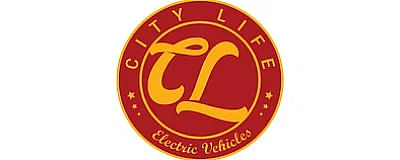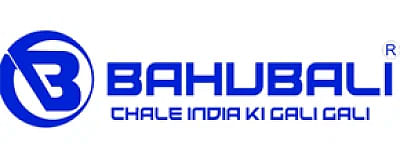Ratan Tata: Innovator, Philanthropist, and Titan of Indian Industry

Introduction
Ratan Tata (28.12.1937 – 09.10.2024) stands as a monumental figure in the world of Indian business, renowned for his visionary leadership, commitment to ethical practices, and extensive philanthropic efforts. As the former chairman of Tata Sons, he played a crucial role in steering the Tata Group—one of India's largest and most respected conglomerates—toward unprecedented growth and global prominence. His legacy transcends the business realm, impacting society through various social initiatives and charitable contributions. This article delves into the multifaceted dimensions of Ratan Tata’s legacy, exploring his life, achievements, and the enduring impact of his work.
Early Life and Education
- Background

Ratan Naval Tata was born on December 28, 1937, in Mumbai, India, into a family deeply embedded in the industrial landscape of the country. His father, Naval Tata, was an influential industrialist and a key figure in the expansion of the Tata Group. Naval Tata's career began in the Tata family business, and he was instrumental in laying the groundwork for what would later become a diversified industrial empire. After being adopted by the Tata family, Naval Tata served in various capacities, including managing Tata Steel, and was pivotal in modernizing the organization.
His mother, Sonoo Tata, was a strong influence in his life, instilling values of education, hard work, and social responsibility. The Tata family's commitment to philanthropy and community service played a significant role in shaping Ratan's worldview, fostering a sense of duty toward societal betterment.
- Childhood Education
Ratan Tata began his education at the prestigious Cathedral and John Connon School in Mumbai, known for its rigorous academic standards and emphasis on holistic development. He excelled in his studies and participated in various extracurricular activities, which helped nurture his leadership skills and confidence.

After completing his schooling, Ratan Tata pursued higher education in the United States. He attended Cornell University, where he obtained a Bachelor of Architecture degree in 1962. His time at Cornell allowed him to explore his interest in design and structure while also providing a global perspective on education and culture.
Following his graduation from Cornell, Ratan Tata continued his academic journey by enrolling in the Advanced Management Program at Harvard Business School. This program, designed for senior executives and future leaders, equipped him with critical business strategies and management techniques. His education laid a strong foundation for his future role in leading the Tata Group and fostering innovation within the organization.
Timeline of Achievements
Ratan Tata's career is marked by a series of transformative achievements that reshaped the Tata Group and Indian industry as a whole.
| Year | Achievement |
| 1962 | Joined Tata Group, beginning his career at Tata Steel |
| 1971 | Appointed Director of Tata Industries |
| 1981 | Became Chairman of Tata Industries |
| 1991 | Succeeded J.R.D. Tata as Chairman of Tata Sons |
| 1998 | Launched Tata Indica, India’s first passenger car |
| 2000 | Acquired Tetley Tea, enhancing Tata's position in the beverage market |
| 2004 | Acquired Corus Steel, one of the largest acquisitions by an Indian company |
| 2008 | Launched Tata Nano, the world's cheapest car |
| 2008 | Acquired Jaguar Land Rover, revitalizing these iconic brands |
| 2010 | Established Tata Medical Center in Kolkata |
| 2014 | Retired as Chairman of Tata Sons, leaving a legacy of innovation and corporate responsibility |
| 2016 | Launched Tata Trusts’ initiatives focusing on philanthropy |
| 2021 | Received multiple honorary doctorates for contributions to society and business |
Transformative Leadership
- Growth and Financial Performance
Ratan Tata's leadership marked a period of extraordinary growth for the Tata Group. When he assumed the role of chairman in 1991, the conglomerate generated around $5 billion in revenue. By the time he retired in 2014, this figure had surged to over $100 billion. This growth was not merely numerical; it represented a diversification of interests and a strategic expansion into global markets.
Under Tata’s leadership, the Tata Group's profit margins improved significantly, thanks to a well-executed strategy of mergers, acquisitions, and innovation. His focus on operational efficiency and the integration of advanced technologies allowed the Group to maintain a competitive edge.
- Innovative Ideas and Diversification
Ratan Tata was a pioneer of innovation within the Tata Group. His vision to diversify the Group’s portfolio led to significant developments across various sectors:
- Tata Consultancy Services (TCS): Under his stewardship, TCS emerged as one of the world's leading IT services firms, significantly contributing to the Group's revenue and enhancing its global footprint.
- Automotive Sector: The launch of Tata Indica in 1998 was a game-changer, as it was India’s first passenger car designed and manufactured domestically. This was followed by the launch of the Tata Nano in 2008, aimed at making car ownership affordable for the masses, despite its mixed reception.
- Sustainability Initiatives: Ratan Tata emphasized sustainable practices across the Group, including investments in renewable energy and eco-friendly technologies. His approach demonstrated a commitment to not only business success but also to environmental stewardship.
Ethical Business Practices
Ratan Tata is widely regarded for his commitment to ethical business practices. His leadership style emphasized integrity, transparency, and social responsibility. He firmly believed that businesses should be accountable to their stakeholders and the communities they operate in. This ethos permeated the Tata Group, fostering a culture of trust and respect.
Tata's dedication to corporate governance earned the Group accolades for its ethical practices, positioning it as a role model for businesses in India and beyond. His principled approach to business has set a high standard, influencing a generation of business leaders.
Philanthropy and Contributions to Society
Beyond his corporate achievements, Ratan Tata is celebrated for his generous contributions to society. His philanthropic endeavors are rooted in the Tata family’s long-standing commitment to social welfare.
- Key Contributions
- Tata Trusts: Ratan Tata has been instrumental in strengthening the Tata Trusts, which oversee a substantial portion of the Group's profits. The Trusts fund numerous initiatives in healthcare, education, and rural development, aiming to uplift marginalized communities.
- Tata Medical Center: Established in Kolkata, this specialized cancer hospital provides affordable treatment and has become a vital healthcare resource for many.
- Educational Initiatives: Ratan Tata supports various educational institutions, including the Tata Institute of Social Sciences (TISS), which focuses on social work and development studies. His efforts aim to empower youth through education and skill development.
- Skill Development Programs: Understanding the importance of skill development, Tata has championed initiatives that provide vocational training to youth, preparing them for the workforce.
- Disaster Relief: The Tata Group has a rich history of responding to natural disasters, providing immediate aid and support to affected communities. Ratan Tata has personally overseen many of these efforts, emphasizing the importance of corporate responsibility in times of crisis.
Awards and Recognition
Ratan Tata's contributions have been acknowledged through numerous prestigious awards, reflecting his profound impact on both business and society. Among the most notable are the Padma Bhushan, one of India's highest civilian honors, awarded in 2000. While these awards stand out, they are just a few of the many accolades Ratan Tata has garnered throughout his illustrious career, showcasing his commitment to ethical leadership and social responsibility.

- Timeline of Awards:
| Year | Award | Awarding Body |
| 2000 | Padma Bhushan | Government of India |
| 2001 | Honorary Doctor of Business Administration | Ohio State University |
| 2004 | Medal of the Oriental Republic of Uruguay | London School of Economics and Political Science |
| 2007 | Carnegie Medal of Philanthropy | Carnegie Endowment for International Peace |
| 2008 | Padma Vibhushan | Government of India |
| 2008 | Honorary Doctor of Law | University of Cambridge |
| 2008 | Honorary Doctor of Science | Indian Institute of Technology Bombay |
| 2008 | Honorary Doctor of Science | Indian Institute of Technology Kharagpur |
| 2008 | Honorary Citizen Award | Government of Singapore |
| 2008 | Honorary Fellowship | The Institution of Engineering and Technology |
| 2008 | Inspired Leadership Award | Indian Affairs India Leadership Conclave |
| 2013 | Ernst and Young Entrepreneur of the Year – Lifetime Achievement | Ernst & Young |
| 2013 | Honorary Doctor of Business Practice | Carnegie Mellon University |
| 2014 | Honorary Doctor of Business | Singapore Management University |
| 2014 | Sayaji Ratna Award | Baroda Management Association |
| 2014 | Honorary Knight Grand Cross of the Order of the British Empire (GBE) | Queen Elizabeth II |
| 2014 | Honorary Doctor of Laws | York University, Canada |
| 2015 | Honorary Doctor of Automotive Engineering | Clemson University |
| 2015 | Sayaji Ratna Award | Baroda Management Association, Honoris Causa, HEC Paris |
| 2016 | Commander of the Legion of Honour | Government of France |
| 2018 | Honorary Doctorate | Swansea University |
| 2021 | Assam Baibhav | Government of Assam |
| 2022 | Honorary Doctorate of Literature | HSNC University |
| 2023 | Honorary Officer of the Order of Australia | King Charles III |
| 2023 | Udyog Ratna | Government of Maharashtra |
These awards reflect not only his business acumen but also his dedication to societal betterment and ethical leadership.
Legacy and Influence
Ratan Tata’s legacy extends beyond the financial success of the Tata Group. His visionary leadership, ethical approach, and commitment to social responsibility have inspired countless individuals and organizations. He serves as a model for aspiring business leaders, demonstrating that it is possible to achieve success while prioritizing ethical considerations and community welfare.
His influence can be seen in the way modern businesses are beginning to integrate corporate social responsibility into their core strategies. Ratan Tata’s belief that businesses should be a force for good continues to resonate, encouraging a new generation of leaders to adopt similar values.
Conclusion
Ratan Tata’s legacy is a rich tapestry woven from threads of innovation, ethical business practices, and deep-rooted social responsibility. His visionary leadership transformed the Tata Group into a global conglomerate while ensuring that the organization remained committed to community welfare and corporate ethics. As he continues to inspire future generations, Ratan Tata remains a pivotal figure in Indian business and philanthropy, embodying the values that define the Tata brand. His life’s work serves as a powerful testament to the belief that business can and should be a transformative force for good in society.
नवीनतम Industry Insights समाचार
सभी Industry Insights समाचार देखेंलोकप्रिय ट्रक ब्रांड
लोकप्रिय बस ब्रांड
लोकप्रिय तिपहिया वाहन ब्रांड
 अल्टीग्रीन
अल्टीग्रीन यूलर मोटर्स
यूलर मोटर्स महिंद्रा
महिंद्रा पियाजियो
पियाजियो बजाज
बजाज ग्रीव्स मोबिलिटी
ग्रीव्स मोबिलिटी अटुल
अटुल टीवीएस
टीवीएस ओमेगा सेइकी मोबिलिटी
ओमेगा सेइकी मोबिलिटी किनेटिक
किनेटिक लोहिया
लोहिया जेएसए
जेएसए वाईसी इलेक्ट्रिक
वाईसी इलेक्ट्रिक उड़ान
उड़ान एसएन सोलर एनर्जी
एसएन सोलर एनर्जी सारथी
सारथी तेजा (ग्रीव्स के पावर से)
तेजा (ग्रीव्स के पावर से) जेज़ा मोटर्स
जेज़ा मोटर्स ग्रीनरिक
ग्रीनरिक सिटी लाइफ इलेक्ट्रिक
सिटी लाइफ इलेक्ट्रिक अम्पीयर
अम्पीयर बाबा इलेक्ट्रिक
बाबा इलेक्ट्रिक ई-आश्वा
ई-आश्वा बाहुबली ई रिक्शा
बाहुबली ई रिक्शा डाबंग
डाबंग डेल्टिक
डेल्टिक केटो मोटर्स
केटो मोटर्स मिनी मेट्रो
मिनी मेट्रो गयाम मोटर्स
गयाम मोटर्स जेम ईवी
जेम ईवी जीकॉन ऑटोमोटिव
जीकॉन ऑटोमोटिव स्काईराइड
स्काईराइड ठुकराल इलेक्ट्रिक
ठुकराल इलेक्ट्रिक बैक्सी
बैक्सी ईब्लू
ईब्लू हेक्सॉल
हेक्सॉल जॉय
जॉय मोंट्रा
मोंट्रा स्टार
स्टार डैंडेरा
डैंडेरा